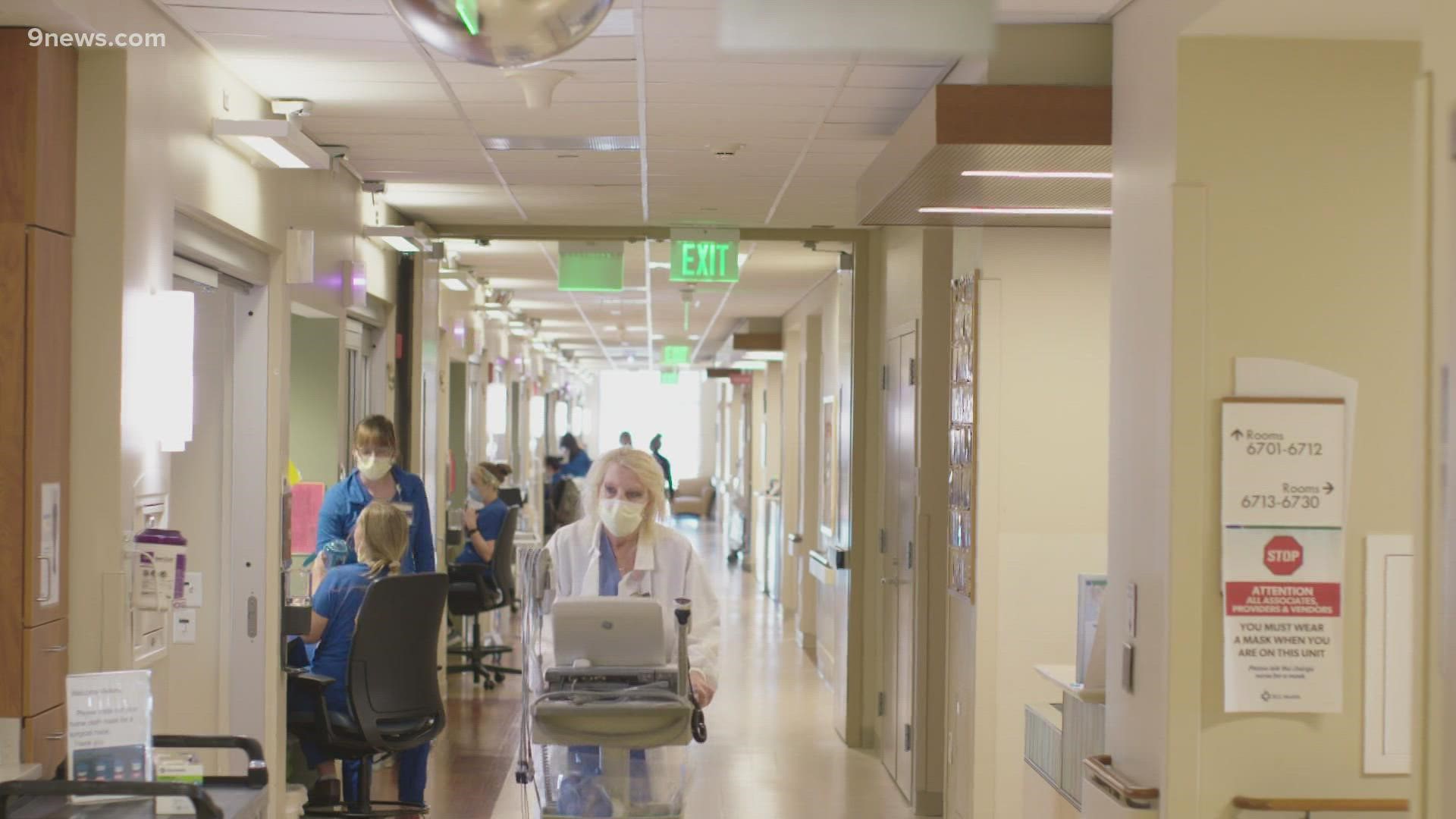DENVER — If you don’t see it on their faces, listen to their words. Nearly two years into the pandemic, health care workers are exhausted, beat down and bruised after treating thousands of COVID patients. Yet they won’t stop fighting to try and save every patient that comes into the hospital needing their help.
At Saint Joseph Hospital in Denver, Gabriel, Hannah, Paola, Jesus, Steph, Kim, Paula, Dan, and Greg are all on the frontline of the battle against COVID-19. Everyday, they come to work to treat patients and care for their families.
Regardless of race, vaccination status, sexual orientation, political beliefs or any of the other factors that divide our country, these nurses, doctors, chaplains, therapists and staff treat every patient the same.
9NEWS spoke with nine health care workers at SCL Health’s Saint Joseph Hospital about their time treating COVID-19 patients and the impact the pandemic has had on them. These are their stories.
Paola Stout, Nurse

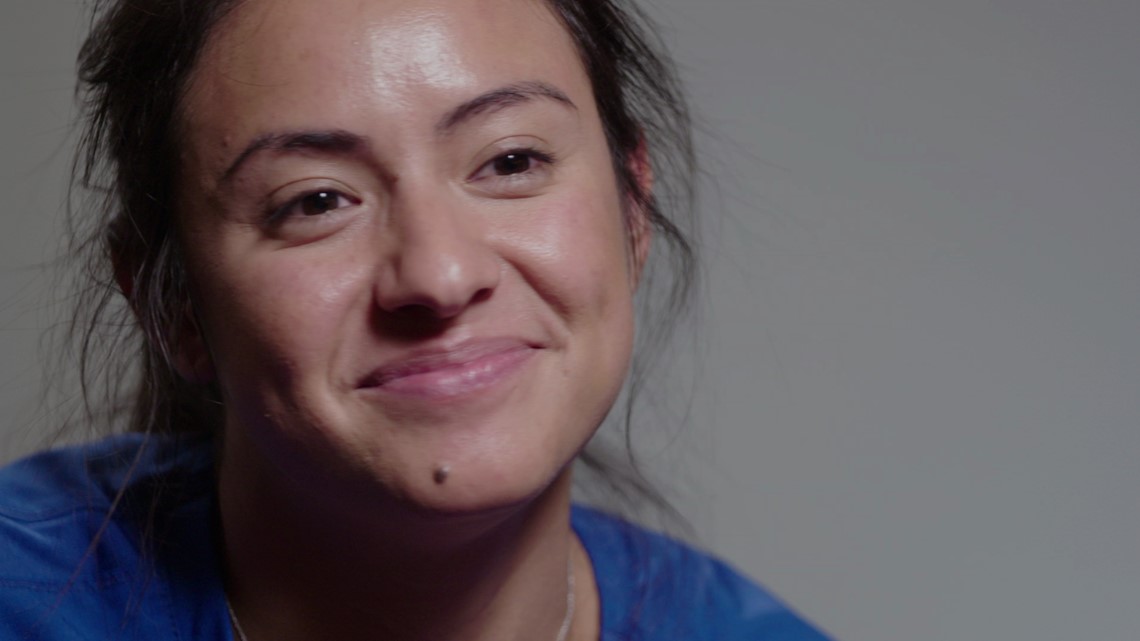
“I grew up without much access to health care, so I wanted to do something different and do something for my community.”
Paola Stout is a nurse who works treating COVID patients that are not in the ICU, along with patients in the hospital for other reasons.
When the pandemic started, she was sure of one thing: she couldn’t sit out this fight.
“It was hard to get a position as a new grad nurse in a pandemic," Stout said. "Everywhere I applied, everyone was like, ‘Hold on, we just don’t know what this will be. We want nurses to have experience.’ I was like, 'I have no experience, but I want to help.' I genuinely was like, 'I went to school to help, why am I not helping?'”
Connection is vital in health care, even when a mask is covering half of her face.
“We’ve learned to smile with our eyes, and that’s something that’s good," Stout said. "But it doesn’t take away the fact that they can’t see us smile and have that personal connection in that form. That’s just something very unique to human nature."
Her ability to communicate with Spanish-speaking patients helps calm nerves and ease skepticism.
“Now that I’m a nurse, there’s a huge difference when someone comes in speaking Spanish and their nurse speaks Spanish,” she said.
Stout has seen a lot of very sick people since she started working at the hospital in October of 2020. The patients that recover keep her going.
“Probably the biggest high is seeing a patient get discharged after having COVID,” Stout said. “It gives you hope. They’re fighting hard. Our patients are, man, they’re hopeful and they’re keeping their spirits up and we keep it right there with them.”
Sitting out this fight is not an option.
“I’ve personally started going to therapy because that’s something that I desperately need," she said. "I think that’s what keeps my smile on, knowing that I’m doing the best that I can, to be the best version of me, so I can be the best version for my patients and be the nurse that they need me to be. It’s not easy. It’s not easy at all. But I do it anyways.”
Dr. Gabriel Lockhart, ICU Director

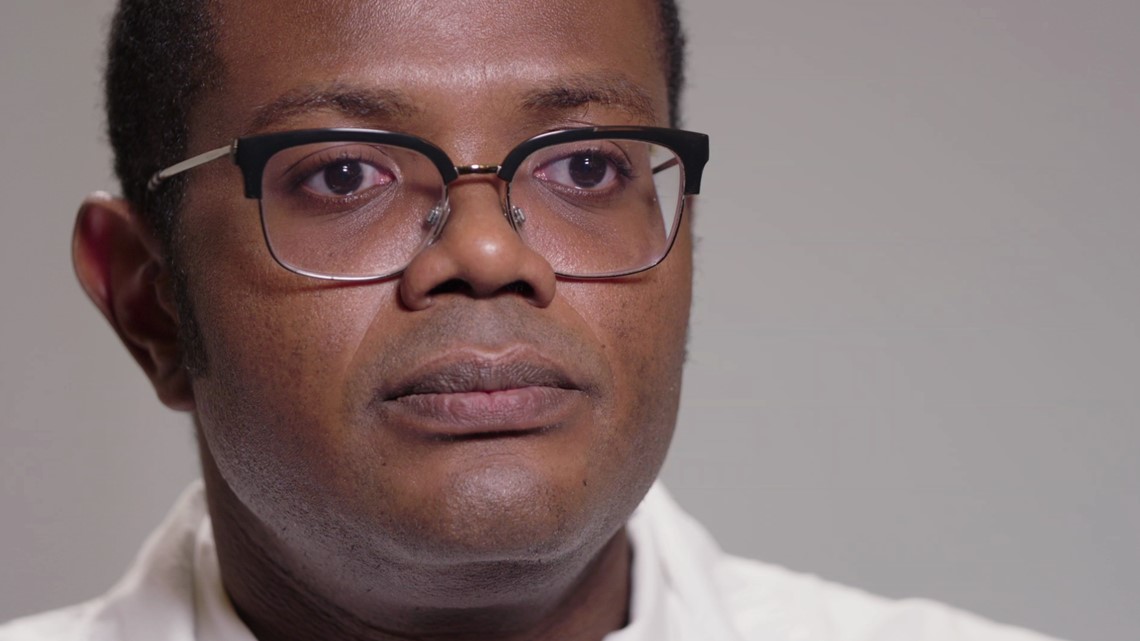
“Whoever comes into the hospital, I don’t really look at where they came from, I don’t look at their past. I look at what I can do to help them today.”
Dr. Gabriel Lockhart is the medical director for the Intensive Care Unit. He’s charged with managing the unit that treats the sickest COVID patients in the hospital. His team of doctors and nurses have taken care of thousands of people in the ICU who were sick with COVID.
“The amount of resilience and perseverance that the team has shown and demonstrated during that time has just been tremendous,” Lockhart said.
He also works with the state to help distribute vaccines, focusing his efforts on communities that are skeptical about its worth and safety.
“For me personally, I’m African American, I’m half Puerto Rican," Lockhart said. "These populations have been disproportionately affected by the pandemic. I was able to raise awareness that these populations need to be especially addressed, and there needs to be a good approach to it."
Not even his own family is immune to skepticism and hesitancy.
“My mother, she’s Hispanic, and she for a long time was not going to accept the vaccine," Lockhart said. "Having been the face of the vaccine in Colorado, that was especially disheartening to have my own mother not want to accept the vaccine. I wanted to be an example for them so that they felt confident. I held a two hour lecture so that I could talk to my family about where the vaccine came from, the issues with COVID, and why it was so important for the population especially to get vaccinated.”
It paid off.
“She later on came to me and said, ‘You know, you were right and it was foolish of me to not get vaccinated,'" he said. "And she’s been super thankful for that.”
> In their own words: Health care workers exhausted but still fighting to treat patients
Stephanie Musgrove, Emergency Department Educator and Nurse

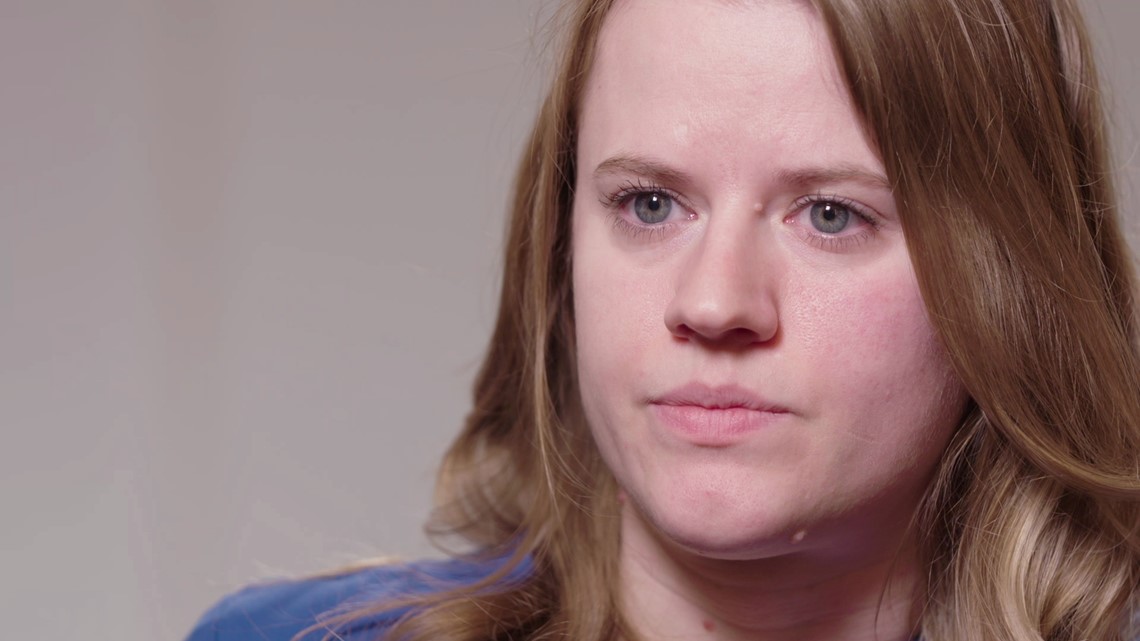
“There’s always that risk being somebody who is immunocompromised working in health care, because you never know what you’re going to necessarily get exposed to.”
Steph Musgrove is an ER nurse and Emergency Department educator. Nurses like her are often among the first people COVID patients see when they come into the hospital.
“The amount of death, and dying, and just sick people has definitely been a taxing thing to be a part of,” Musgrove said.
She’s been forced to deal with misinformation and even her patients not believing her.
“People who don’t believe us, or believe science, or believe in the vaccine still come to us when they need us," Musgrave said. "When they’re sick or when they’re injured they still come in through our doors. And we want them. We accept them no matter their beliefs, no matter what they’re background or their history. That’s why we’re here, is to help people."
She continues to help despite the resistance she sometimes faces.
"I’ll be completely honest," she said. "Throughout the pandemic, especially when people went from calling us heroes to now liars, you can’t help but think, 'Why do I do this still? Why does everybody still wake up and come to the hospital and work and take care of people who don’t believe us?'”
Still, they still show up.
“I have lupus and I had been fully vaccinated and I just got COVID, Musgrove said. "Lupus is an autoimmune disease and you take immunosuppressant medications to help treat it, and so all of that combined makes you higher risk. I would be in the at-risk category along with the elderly. I can’t lie. I definitely was scared. I mean, I think everybody was.”
Greg Slate, Manager of Spiritual Care and Chaplain

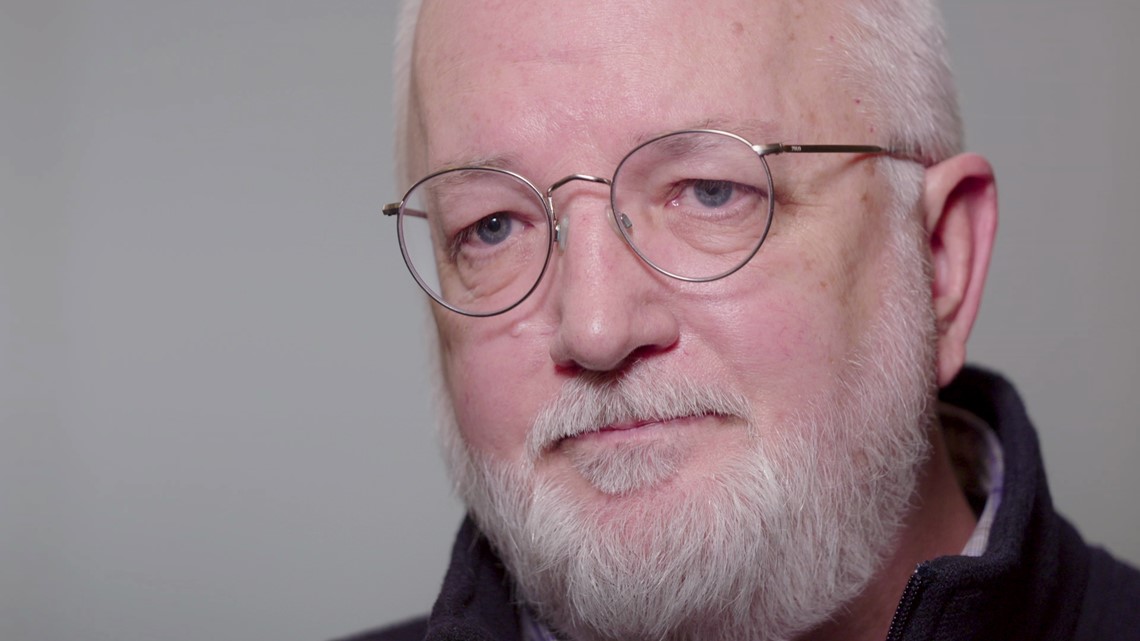
“Trying to figure out how to take care of yourself so that you can take care of others has been the big challenge.”
Greg Slate is a chaplain and manager of Spiritual Care at Saint Joseph Hospital. He’s shifted his focus this year to spend more time working with staff.
“I will just always remember, I think, the look in the eyes of the staff that had the biggest bulk of the load for COVID," Slate said. "That’s the one thing that I think I’ll always remember. On some days it was fear. On some days I would feel like it was just a weariness. Just an overall weariness because it was unrelenting. Everything that was coming wasn’t slowing down. It was just over and over and over, and yet they came back in shift after shift after shift.”
The hospital has started doing resiliency check-ins with nurses and staff to make sure they are taking care of themselves.
“Our outreach to our associates has really dramatically increased throughout this process,” said Slate. “I think the wisdom is in listening most of the time and in being really measured in how you respond.”
Dan Rutkowski, Physical Therapist

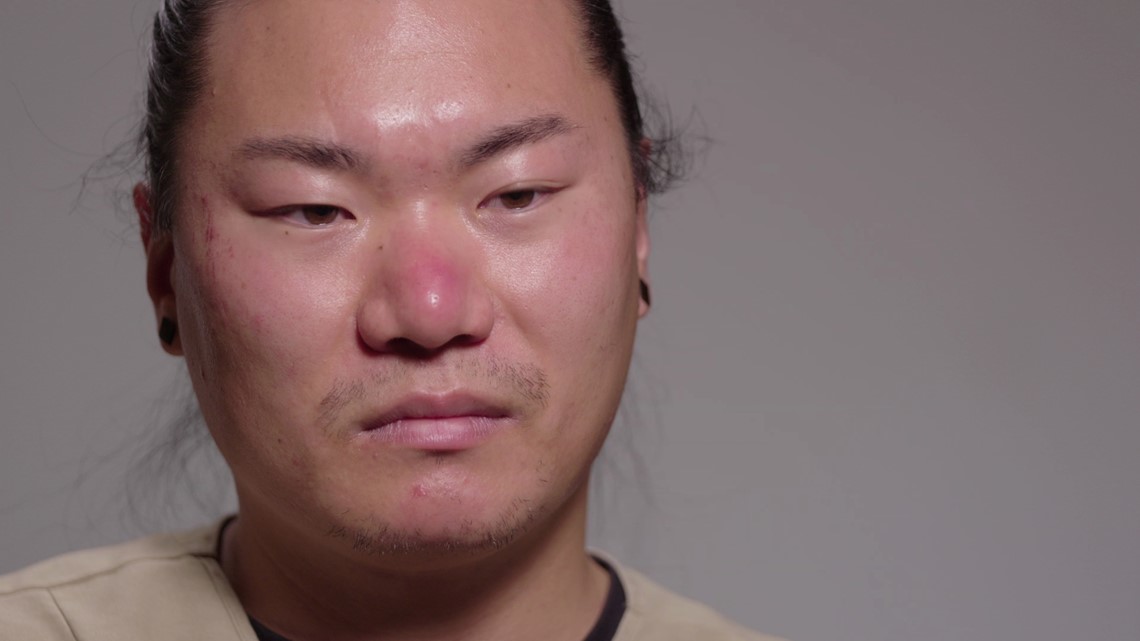
“You only need a few good winning moments to keep you going.”
Dan Rutkowski is a physical therapist, a key role in a hospital treating COVID patients. Even when patients are sedated and on ventilators, people like Rutkowski must help them move to keep their bodies going. Most patients recover. Few stay in touch.
“One patient I can think of in particular, he was really sick," Rutkowski said. "Young, active, healthy guy before this. Had a family. Came in with COVID and it really kicked his butt. Eventually he turned the corner and started doing better. We were able to get him out to acute rehab and we ended up staying in touch a little bit.”
The patient invited him to his daughter’s birthday party.
“It was so surreal for me because my only interactions with him for a while were just him being deathly sick, he said. "Just him being able to talk to me without a vent, and in normal clothes without a hospital gown, it was just surreal. Certain moments like that. It’s what keeps you going. In the hospital, especially in the ICU, you can maybe imagine there’s not as many happy moments as sad moments. I think when there’s lower lows, it makes the highs that much higher. I think that’s what this opportunity was.”
Kim Schmitten, Pre/Post-Procedure Unit Nurse

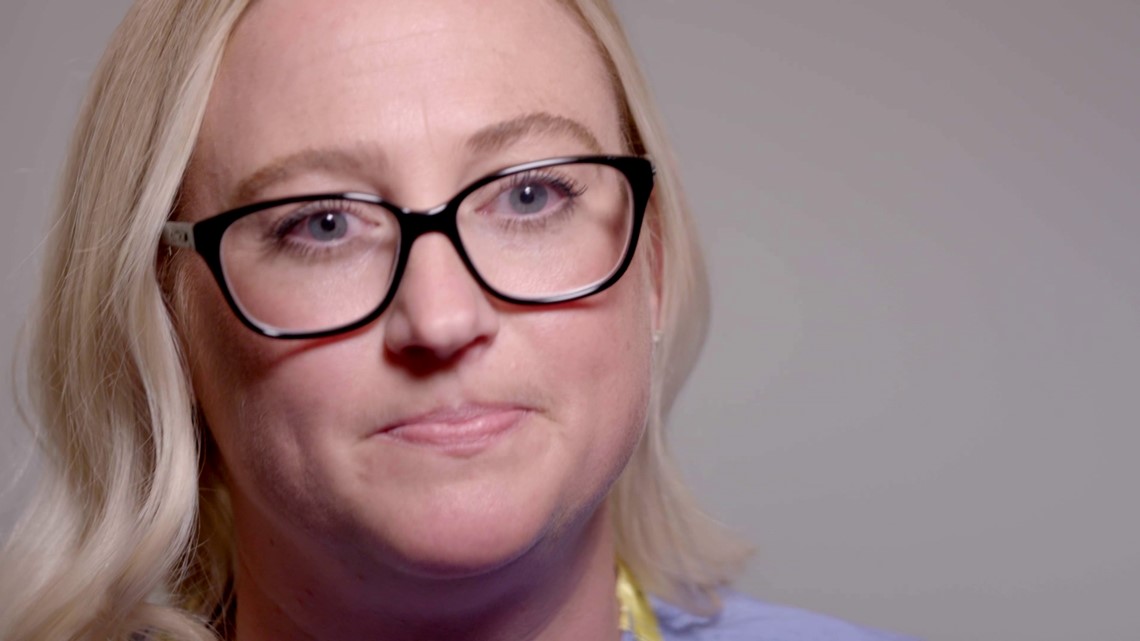
“I felt the need to help. I couldn’t let my coworkers take the brunt of what was happening.”
Before the pandemic, Kim Schmitten spent most of her time as a nurse in the Pre/Post Procedure Unit. When COVID hit she moved to help other units, including the ICU. The hardest part is being with people as they die without their families.
“We would hold the iPad for the family members so that they could be with their loves ones while they passed away," Schmitten said. "Hold their hand and just try and make the patient feel like they’re no alone. That was tough."
Compassion goes a long way.
“I would try to pop my head into the rooms and say to the patients, ‘Your wife called,’" Schmitten said. "I just thought if they could hear that they would not feel so alone. Vaccination status, sexuality, race, none of that matters when you have a patient in front of you.”
Jesus Romero Serrano, Supervisor of Service Excellence

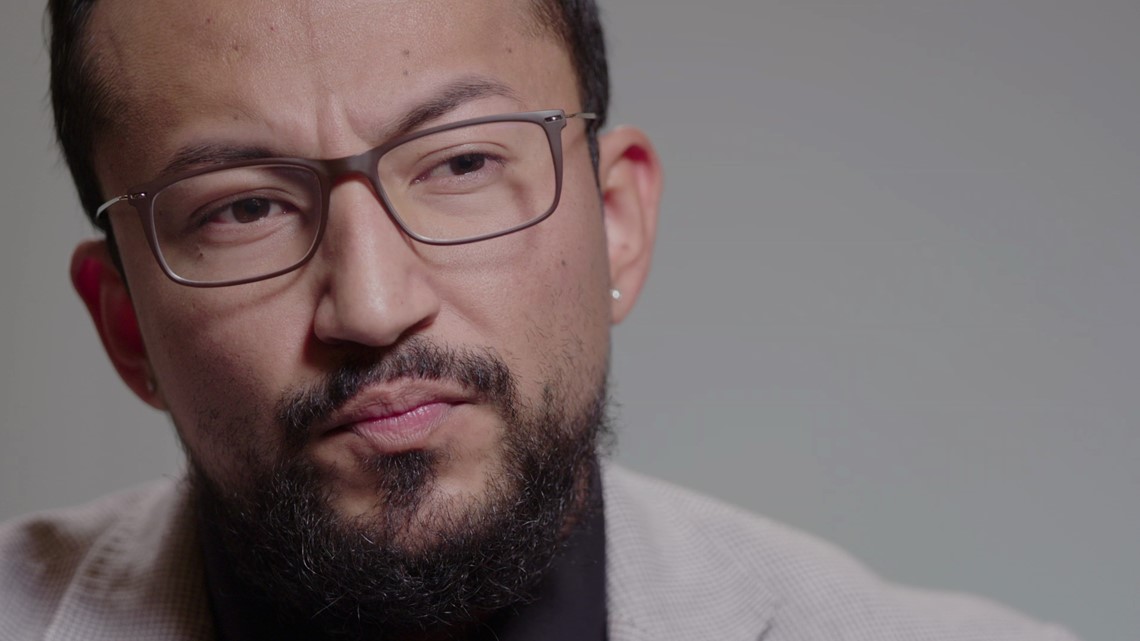
“We’ve been open through the pandemic for a reason. We’re the soul that keeps the fight going.”
A smile can go a long way when people are coming to a hospital. Jesus Romero Serrano knows that.
“Honestly, it’s a higher calling, Romero Serrano said. "It really, really fills my heart to help people who are less fortunate. A lot of these people, they come into the hospital by themselves and they just want somebody to vent to, or somebody to understand what they’re going through, by simply making them feel they’re somewhere familiar.”
Romero Serrano is the supervisor of Service Excellence at the hospital, managing the staff who greet visitors to the hospital.
“No matter how bad this pandemic could have gotten, it never once crossed my mind to quit my job," Romero Serrano said. "Never once was I like, 'I’ve got to sit this one out.' I could not picture myself sitting at home while everything else was going on in the world. What keeps me going is definitely helping those that are vulnerable, those that are in need. That fills me. That’s what keeps me going to this day.”
Paula DiMarzio, Respiratory Therapist

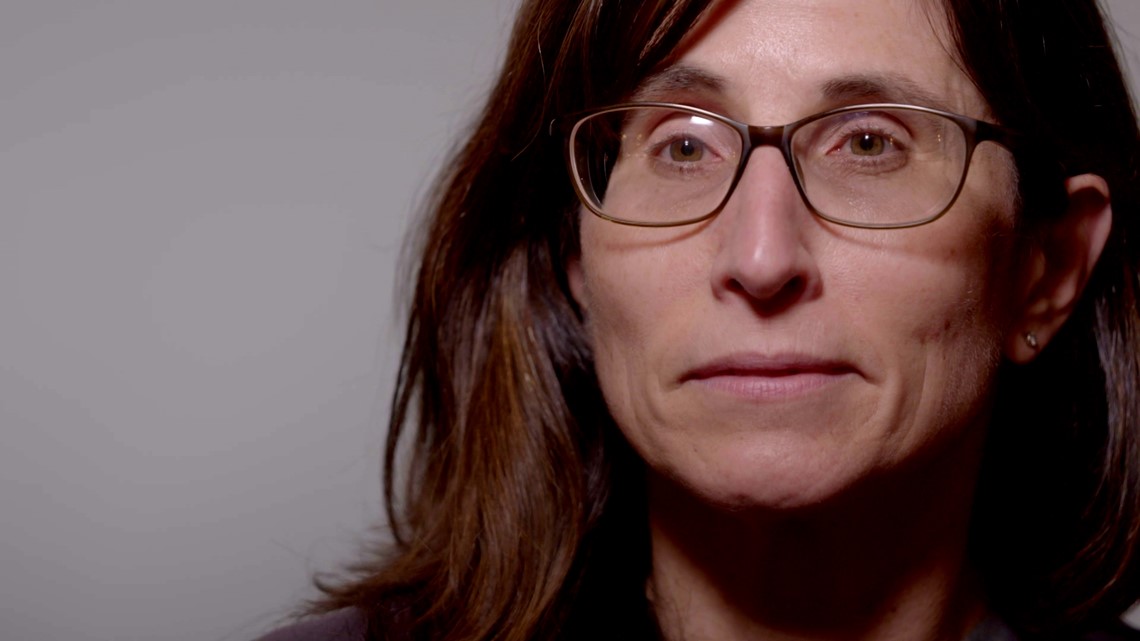
“As a health care worker, we always have hope. We have to.”
Paula DiMarzio is a respiratory therapist. It’s one of the most important jobs in the ICU when it comes to treating COVID patients.
“There’s the joys of seeing a patient come off the ventilator who you thought wasn’t and they’re breathing on their own, those are amazing," DiMarzio said. "And then sadly, there are patients who you’ve done everything in your will for, everything you can think of to help them, and they don’t make it. Sadly, if things aren’t going well, we’re with the patient consoling them, being pretty much the last person they’re with before we have to put them on life support sometimes.”
Respiratory therapists help patients breath when they’re struggling for air. They have to be there for some of the toughest moments.
“Holding their hand, we’re consoling them," DiMarzio said. "We’re just trying to comfort them in some way because we know that they’re going to be sedated, put on a ventilator and not to be able to talk or do anything for a while.”
Hannah Wang, Shift Specialty Coordinator and ICU Nurse

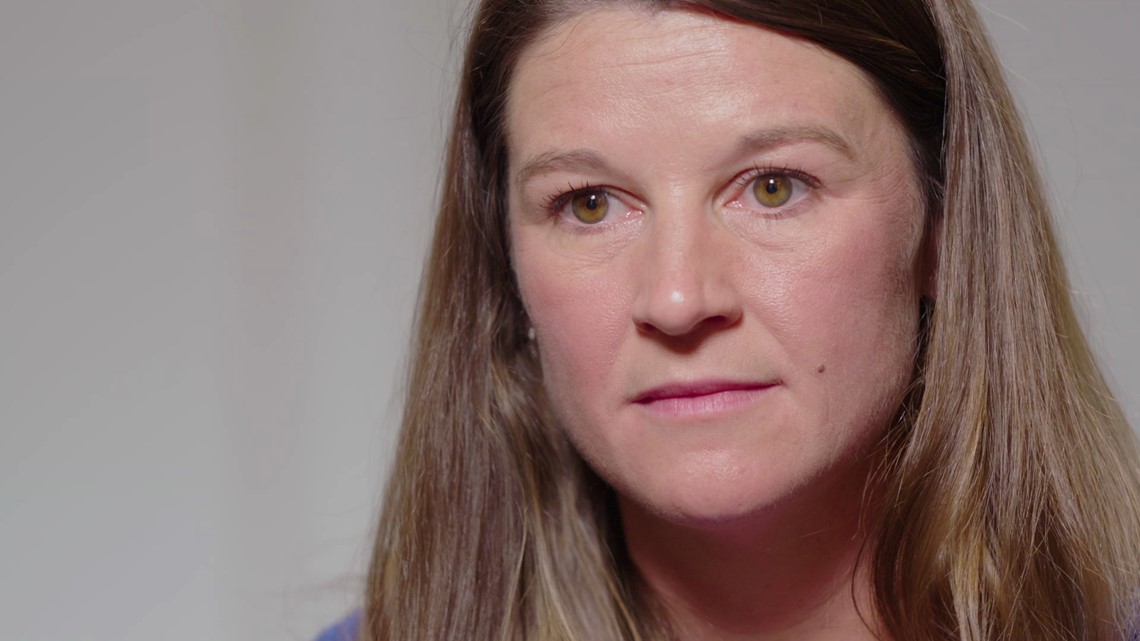
“Every day, pretty much, you hit the ground running and you don’t stop for 12 hours.”
ICU nurses are on the frontlines of battling the virus every single day. Hannah Wang knows the responsibility well.
“I think probably the hardest moment is during the beginning of COVID, we didn’t have a lot of beds, Wang said. "We didn’t know how to treat COVID. There were a lot of people that were dying. I just remember one shift multiple people had died. I was riding my bike home and I was just sobbing. This is not why I became a nurse. I didn’t become a nurse for people to die. I want people to get better."
Wang said nurses get to know COVID patients so well they essentially become family.
“It is a lot of responsibility, but it’s a really sacred responsibility," she said. "It’s a really rewarding responsibility. It’s not often in life you get to have that personal connection with a total stranger.”
Often, Wang has to comfort people as they take their last breaths.
“A lot of them will tell us, ‘Please don’t let me die. I don’t want to die,’" she said "They would tell us, ‘I love my family. Please let my family know how much I love them. Please stay with me. Don’t leave me alone.’ That’s a lot of the conversations that we have. We just work so hard to keep our patients alive, it makes me value life in a way I haven’t before.”
Together, the team of health care workers fight for their patients as hard as they can, for as long as it takes.
“I want to tell nurses that I work with that they’re my heroes," Wang said "I know that the work that we’re doing is really hard right now, but we are resilient and we are strong.”
> Top stories from 9NEWS curated daily just for you! Sign up for the 9NEWSLETTER right now to get can’t-miss stories, Next and Broncos content, weather and more delivered right to your inbox.
SUGGESTED VIDEOS: Feature stories
MORE WAYS TO GET 9NEWS
Subscribe to our daily 9NEWSLETTER for top stories from 9NEWS curated daily just for you. Get content and information right now for can’t-miss stories, Next and Broncos content, weather and more delivered right to your inbox.
DOWNLOAD THE 9NEWS APP
iTunes: http://on9news.tv/itunes
Google Play: http://on9news.tv/1lWnC5n
HOW TO ADD THE 9NEWS APP TO YOUR STREAMING DEVICE
ROKU: add the channel from the ROKU store or by searching for KUSA.
For both Apple TV and Fire TV, search for "9NEWS" to find the free app to add to your account. Another option for Fire TV is to have the app delivered directly to your Fire TV through Amazon.

